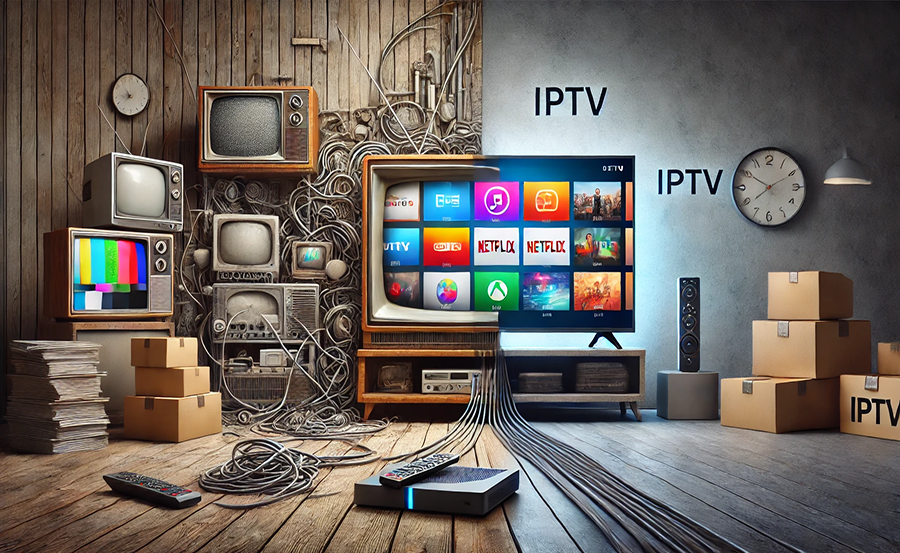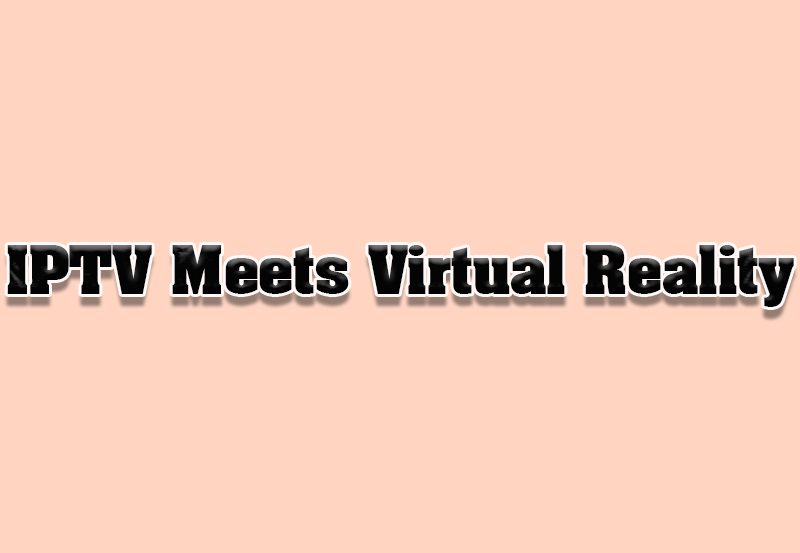In today’s tech-savvy world, the way we consume television content has dramatically evolved. Traditional Cable TV, once the central pillar of home entertainment, now faces serious competition from Internet Protocol Television (IPTV), which promises broader access to global content. But are all these new-fangled technologies really worth ditching the reliable Cable TV for? This article unravels the complexities and provides insight into how IPTV and Cable TV stack against each other.
Understanding IPTV: A Modern Revolution
In the simplest terms, IPTV stands for Internet Protocol Television. Rather than being transmitted via the traditional satellite or cable formats, IPTV uses the internet to deliver video content. This means users can access a plethora of television channels from around the world, irrespective of their geographical location.
The Rise of IPTV for Sports Streaming
One of the significant areas where IPTV has gained substantial traction is sports. Fans globally are drawn to IPTV for sports streaming due to its extensive coverage, which often includes events not widely telecast on traditional platforms. With sports fans’ insatiable thirst for live coverage and replays, IPTV opens up a world of possibilities.
Smart Insight:
Unlock premium UK entertainment with XtremeHD UK, offering crystal-clear live TV and on-demand content.
A typical subscription might offer:
- International live sports channels.
- Exclusive access to niche competitions.
- On-demand replays and highlights.
Unlike Cable TV, which limits users based on regional broadcasting deals, IPTV offers unparalleled global reach, making it a favorite among sports enthusiasts.
How to Install IPTV: A Practical Guide
Installing IPTV might seem daunting if you’re not tech-savvy, but fear not; it’s simpler than you might think. Here’s a quick guide:
- Choose a service provider: Research and select a reputable IPTV provider that aligns with your viewing preferences.
- Download the IPTV app: This could be for a smart TV, set-top box, or your smartphone.
- Install and configure: Follow the provider’s instructions to install the app and input required credentials.
Once installed, you’ll have access to a host of channels, all from your device of choice. And as easy as that, you’re set to master your IPTV entertainment experience.
Cable TV: Still Holding Its Ground
While it might sound like Cable TV’s days are numbered, this traditional form of viewing still holds sway. Familiarity breeds comfort, and for many, Cable TV’s straightforward setup remains unbeatable. You get your box, a straightforward subscription plan, and you’re good to go—no internet concerns, no configurations, just plug and play.
The Benefits of Traditional Cable TV
Cable TV isn’t without its merits. Here are a few reasons why it still garners loyalty:
- Consistency: Once connected, Cable TV offers a routine, consistent service without the hiccups of internet-based streaming.
- Local content: Cable networks often provide content rich in local flavors, something that global IPTV may lack.
- Ease of Use: It’s simpler for families, especially for those who aren’t keen on continuous tech upgrades.
Despite its limitations, Cable TV’s reliability and ease of access keep users coming back for more, solidifying its relevance even in the digital era.
Comparing Costs: IPTV vs. Cable TV
Price is a significant factor for many when deciding between IPTV and Cable TV. IPTV often offers cheaper subscription models, with a variety of packages to cater to different viewing needs. Moreover, unlike the bundled offerings of Cable TV, IPTV allows more flexibility—getting only the channels or services you truly want.
Cable TV, on the other hand, might include higher costs due to equipment rental fees and additional premium content charges. Yet, this often comes with customer service support, which some might find invaluable.
Customization and Content Variety
When it comes to personalizing what you watch, IPTV generally offers an edge with its greater variety and flexibility. With Cable TV, you’re often stuck with predetermined packages that may include content you never watch.
Personalized Viewing with IPTV
IPTV stands out by allowing users to cherry-pick channels and shows that align with their interests. Given its ability to stream from a global array of channels, you have more control over what fills your screens.
Creating Your Own Viewing Schedule
One of IPTV’s greatest appeals is the ability to create a virtually personalized TV schedule. Unlike the rigid programming of Cable TV, IPTV’s on-demand features allow viewers to decide what to watch and when to watch it.
Evaluating IPTV’s Reliability
Despite its many perks, IPTV heavily relies on a stable internet connection. Interruptions in service might rob viewers of the perfect game moment or climax in a movie, an area where Cable TV might have the upper hand with its more constant signal.
Making the Choice: Which is Right for You?
The debate between IPTV and Cable TV often boils down to individual preferences and needs. For those who travel frequently or prioritize global content access, IPTV is a natural choice. Alternatively, for users who value stability and ease over variety, traditional Cable TV might still hold the upper hand.
Streaming Devices and Compatibility
It’s crucial to consider the devices you already have when making your choice. Many smart TVs and streaming boxes today support both IPTV and Cable TV applications. Additionally, weigh the convenience of using existing devices versus the costs of acquiring new ones.
FAQ Section

What is the primary difference between IPTV and Cable TV?
IPTV uses the internet to deliver television content, providing greater global access, while Cable TV relies on established cable or satellite systems with often more localized content offerings.
Is IPTV more cost-effective than Cable TV?
Generally, IPTV may be more cost-effective due to its flexible subscription models, whereas Cable TV might incur higher charges from equipment rental and premium channel subscriptions.
Can I access local channels on IPTV?
While IPTV offers extensive international options, local channels are typically more accessible via Cable TV. However, some IPTV services do provide local channels depending on the provider’s agreement.
How do I ensure a reliable IPTV connection?
For optimal IPTV experience, ensure a stable and high-speed internet connection. Investing in a quality router and considering wired connections over wireless can reduce buffering issues.
Which option offers more variety in programming?
IPTV generally provides a broader range of international channels, while Cable TV might offer limited packages with pre-selected channels.
Are there legal issues with accessing IPTV services?
IPTV legality varies by region, often depending on licensing agreements. It’s essential to choose legitimate providers that comply with regional regulations to avoid any legal complications.
In deciding which is the better option, weigh the advantages and drawbacks of each service carefully with respect to your viewing habits and preferences. By doing so, you can ensure that your home entertainment system is both fulfilling and future-proof.
Step-by-Step Instructions for IPTV Setup on LG Smart TVs





